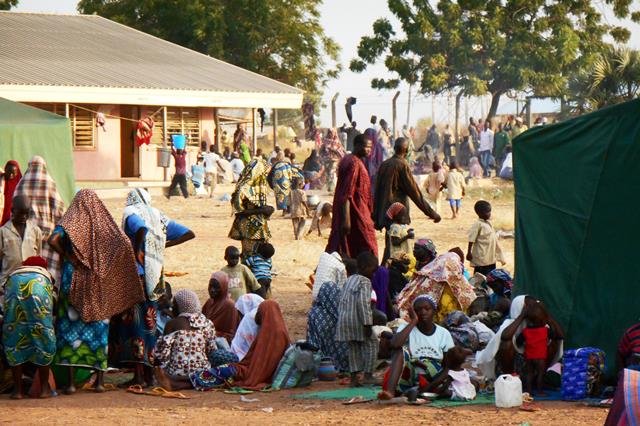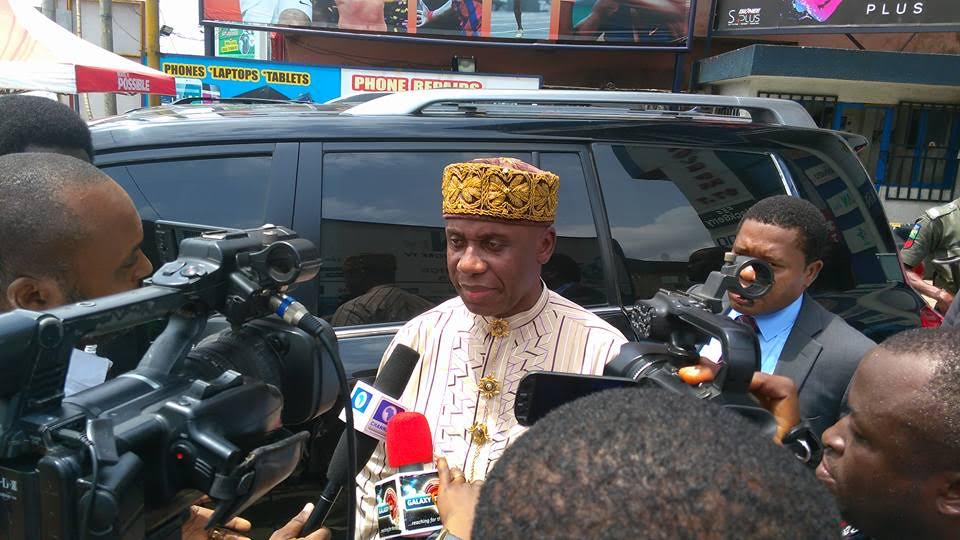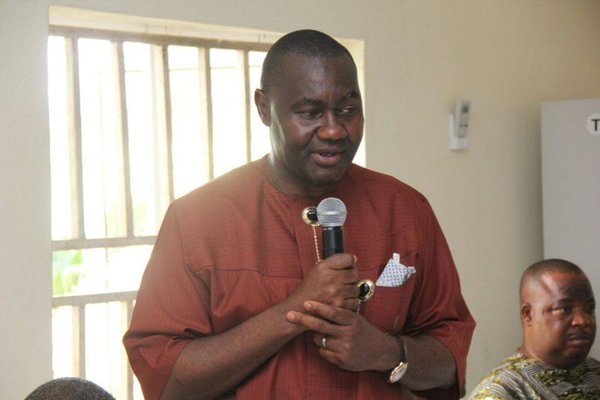Civilians displaced by Boko Haram sit at a camp near Yola, the capital of northeast Nigeria's Adamawa state.
More than 40 percent of “extremely poor people” in the world will be living in Nigeria and DR Congo by 2050, a report by Bill and Melinda Gates Foundation has revealed.
In the 2018 goalkeepers report released Tuesday, the foundation said by 2050, Nigeria will have 152 million people in extreme poverty out of a projected population of 429 million.
It blamed this on the lack of investment in human capital to correspond with the increasing population growth.
Nigeria is currently the seventh most populous country in the world with an estimated population of 198 million.
Advertisement
The annual report, produced in partnership with the Institute for Health Metrics and Evaluation (IHME) at the University of Washington, tracks progress being made on the United Nations sustainable development goals (SDGs).
In June, Brookings Institution reported that Nigeria had overtaken India as the nation with the highest number of poor people, with 87 million of its citizens in extreme poverty.
The International Monetary Fund (IMF) had also said in March that Nigerians are getting poorer due to the lack of coherent and comprehensive economic reforms.
Advertisement
The goalkeepers report said while more than a billion in the world have lifted themselves out of extreme poverty since 2000, “extreme poverty is becoming heavily concentrated in sub-Saharan African countries”.
“By 2050, that’s where 86 percent of the extremely poor people in the world are projected to live. The challenge is that within Africa, poverty is concentrating in just a handful of very fast-growing countries,” the report said.
“By 2050, for example, more than 40 percent of the extremely poor people in the world will live in just two countries: Democratic Republic of Congo and Nigeria. Even within these countries, poverty is still concentrating in certain areas.”
It warned that decades of stunning progress in the fight against poverty and disease may be on the verge of stalling.
Advertisement
This, the report said, is because the poorest parts of the world are growing faster than everywhere else. “If current trend continues, the number of poor people in the world will stop falling – and could even start rising,” it said.
THE WAY OUT
The foundation said to address the poverty crisis, adequate investment would need to be made in young people, especially in areas of education, health and human capital development.
The education and health sectors in Nigeria have suffered neglect over the years. In 2018, N542 billion was earmarked for the education sector while health got N356 billion – out of the N9.1 trillion budget.
Advertisement
“Investing in young people’s health and education is the best way for a country to unlock productivity and innovation; cut poverty, create opportunities and generate prosperity,” the report added.
“The next step is making sure children don’t merely survive but also thrive.”
Advertisement
Add a comment







